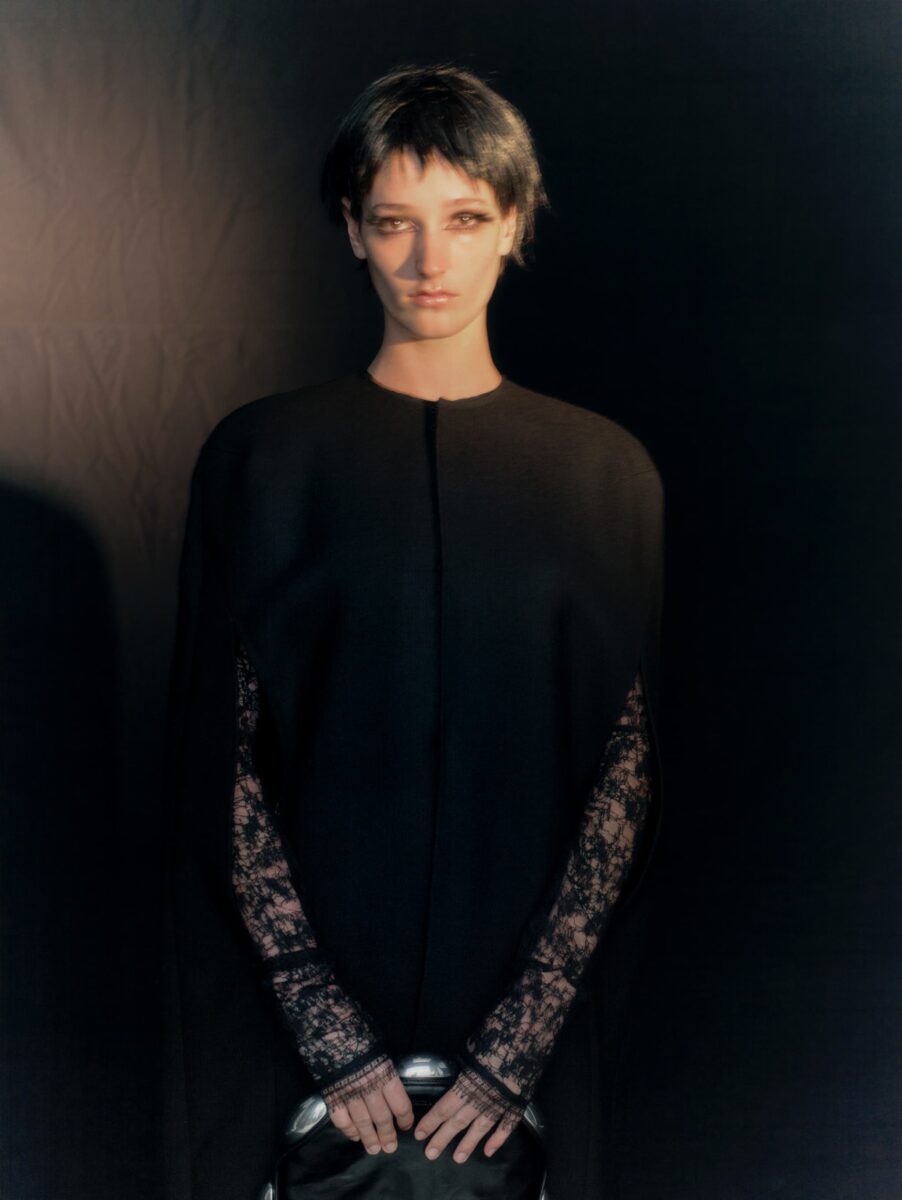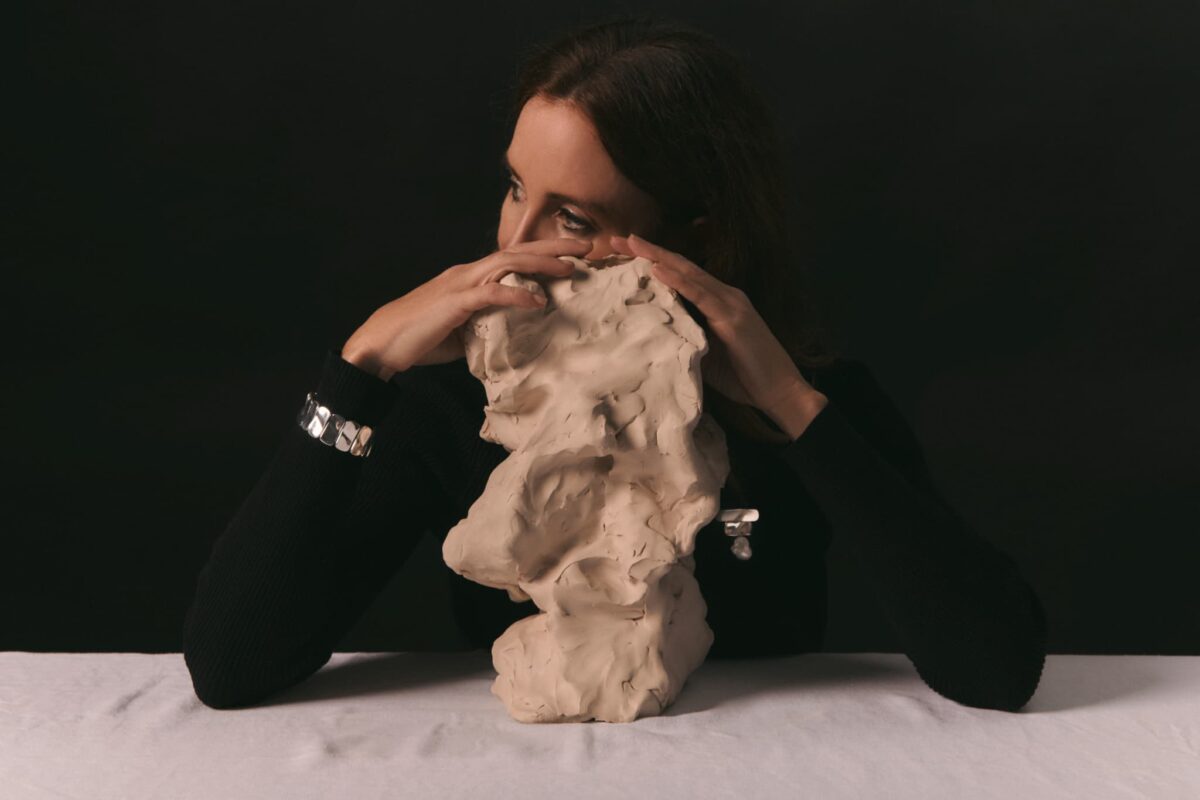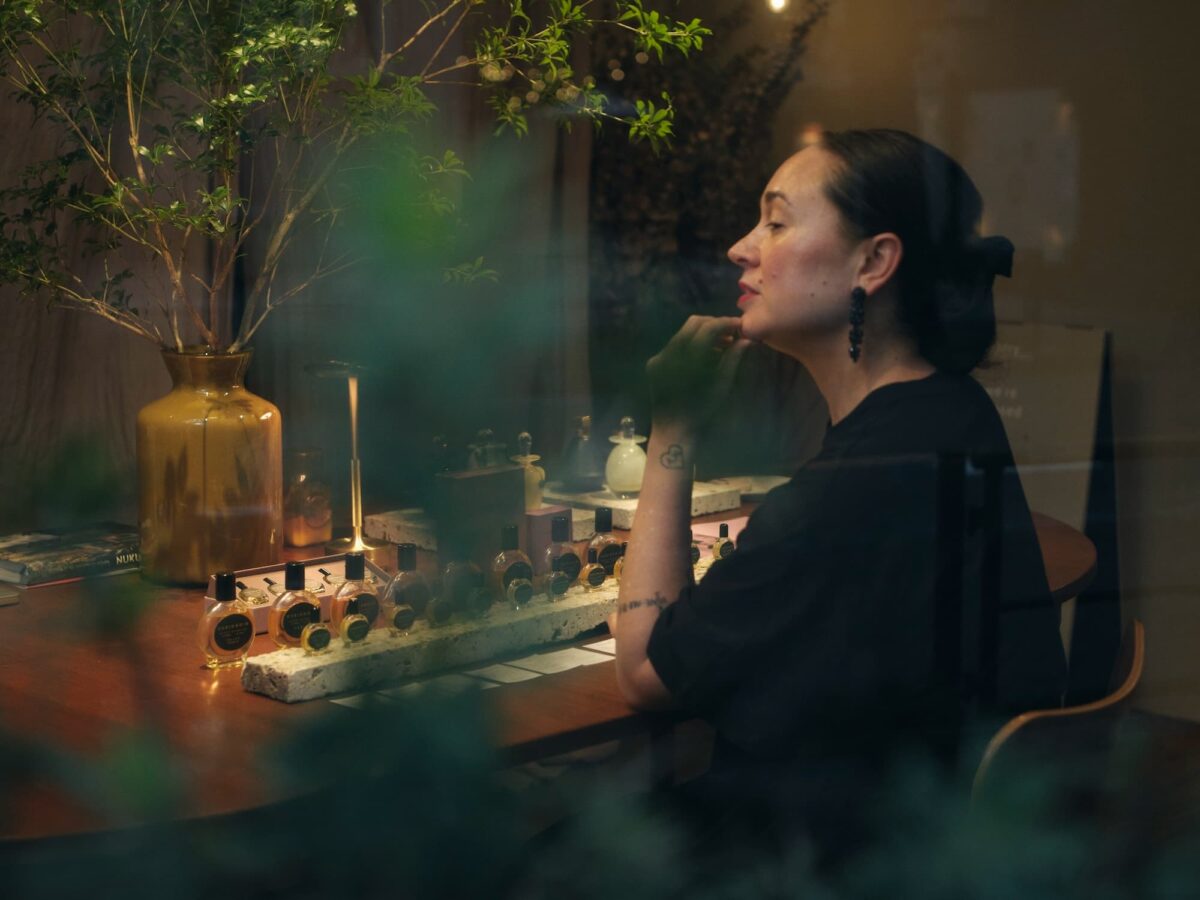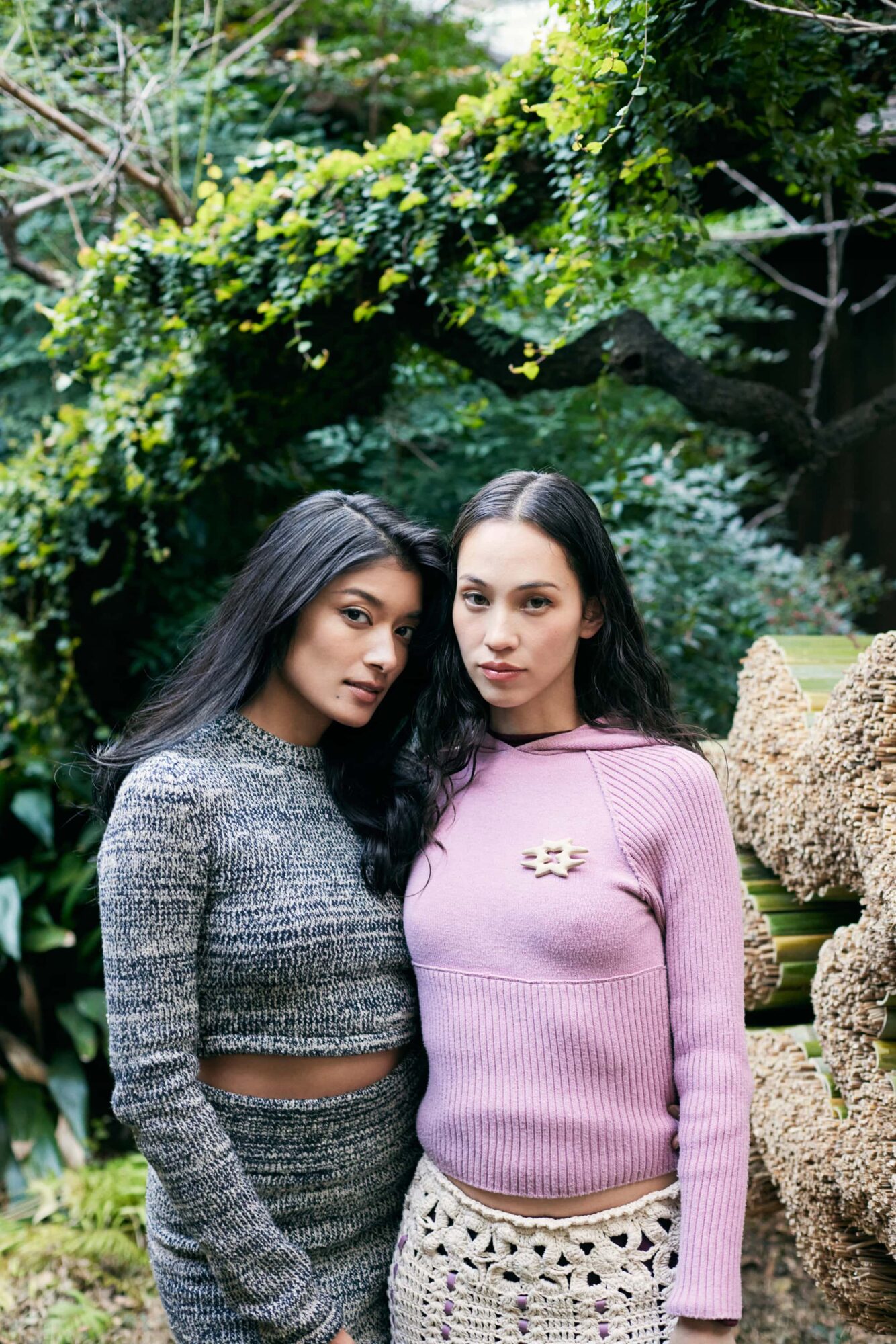
Kiko Mizuhara’s clean beauty brand kiiks has announced a collaboration with Rola, an actress, model, and founder of the sustainable lifestyle brand STUDIO R330. The exhibition was held in an old Japanese house in January.
The beautiful visuals were displayed along with the raw materials used to make tea seed oil and the plant materials used to prepare the fragrance, as well as a Satsuma tsuge comb, bamboo water face mist, and rose balm from Hamanasu.
In a room filled with the fragrance of Green Tea Seed Hair Oil, a collaboration of sandalwood and jasmine, a workshop on phytotherapy using neroli herbs was also held, creating an opportunity to convey the strength and regulating power of plants. The installation, filled with the brand’s worldview of sharing beauty and happiness with the blessings of nature and giving back to nature in gratitude, went viral throughout Japan with sympathy.
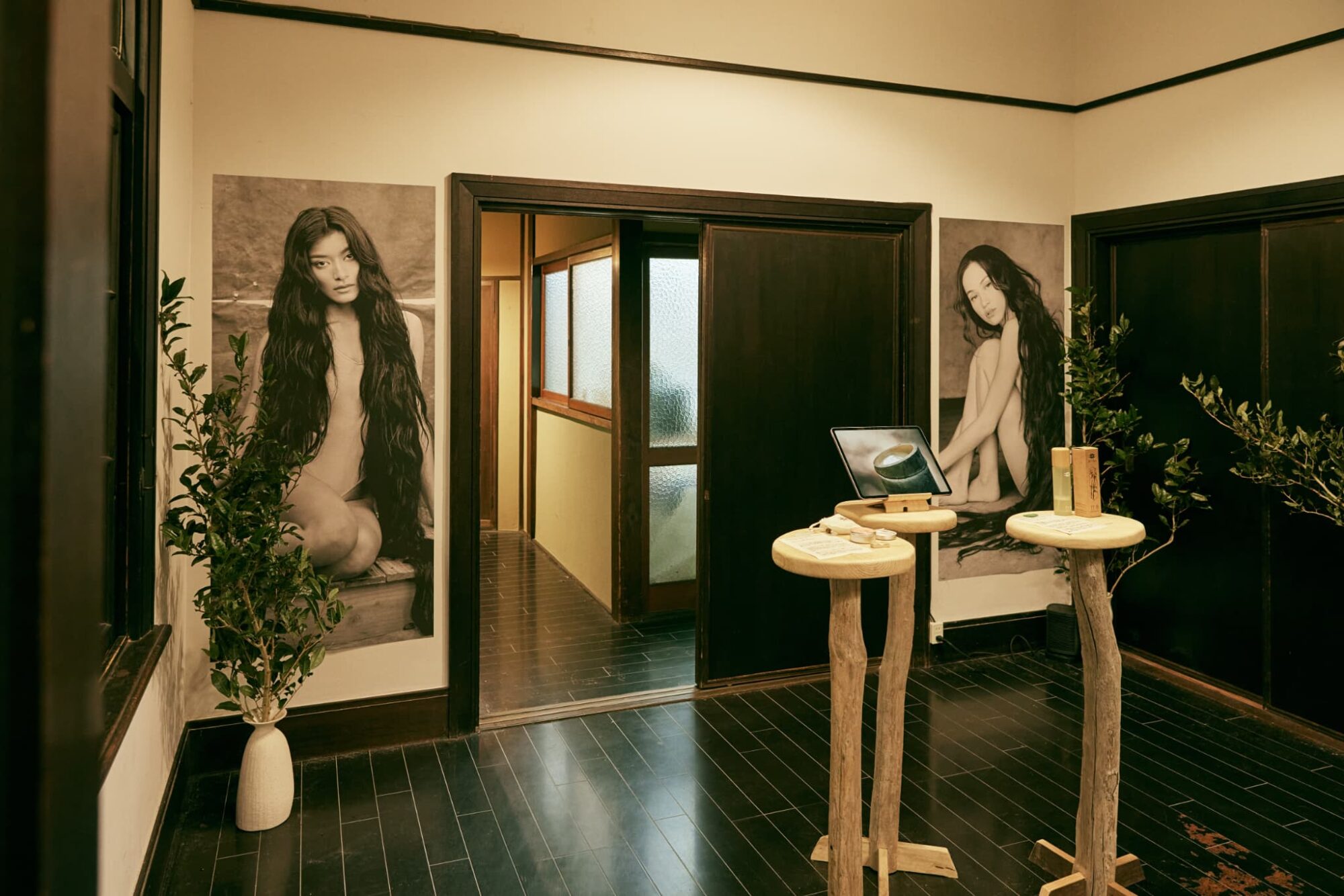
KIIKS has a partnership with Botanical Factory located in Minami-Osumi Town, Kagoshima Prefecture.
Based on the philosophy that “raw materials must be the same as those we put in our mouths,” the company handcrafts even the production of raw materials, including the extraction of plant extracts and distillation of herb water, and is committed to 100% natural origin index (note: in accordance with ISO16128) and does not use synthetic surfactants to “restore skin power on its own”.They are thorough in their consistent manufacturing. But they do not just make products that are good for the skin.
The debut item in the kiiks line, “Hamanasu Rose Balm,” traces its roots back to a custom of the Ainu tribe that used to prevent scurvy, and has not only attracted public interest in the revival of a decadent ethnic culture, but has also contributed to the continuation of traditional Japanese agriculture by creating a fragrant balm based on the benefits of vitamins and polyphenols.
Green Tea Seed Hair Oil” is a blend of tea seed oil harvested from tea plantations in the Banzan area of Kinko Town, Kagoshima Prefecture, which had been abandoned.The area has a history of people who made a living from tea plantations, having fled from Yoron Island during the chaos of World War II.
While sounding the warning bells against the aging of farmers and the lack of successors, which are common problems in Japan today, the company is taking strong steps in the regenerative direction of actually rebuilding farmland through its products.
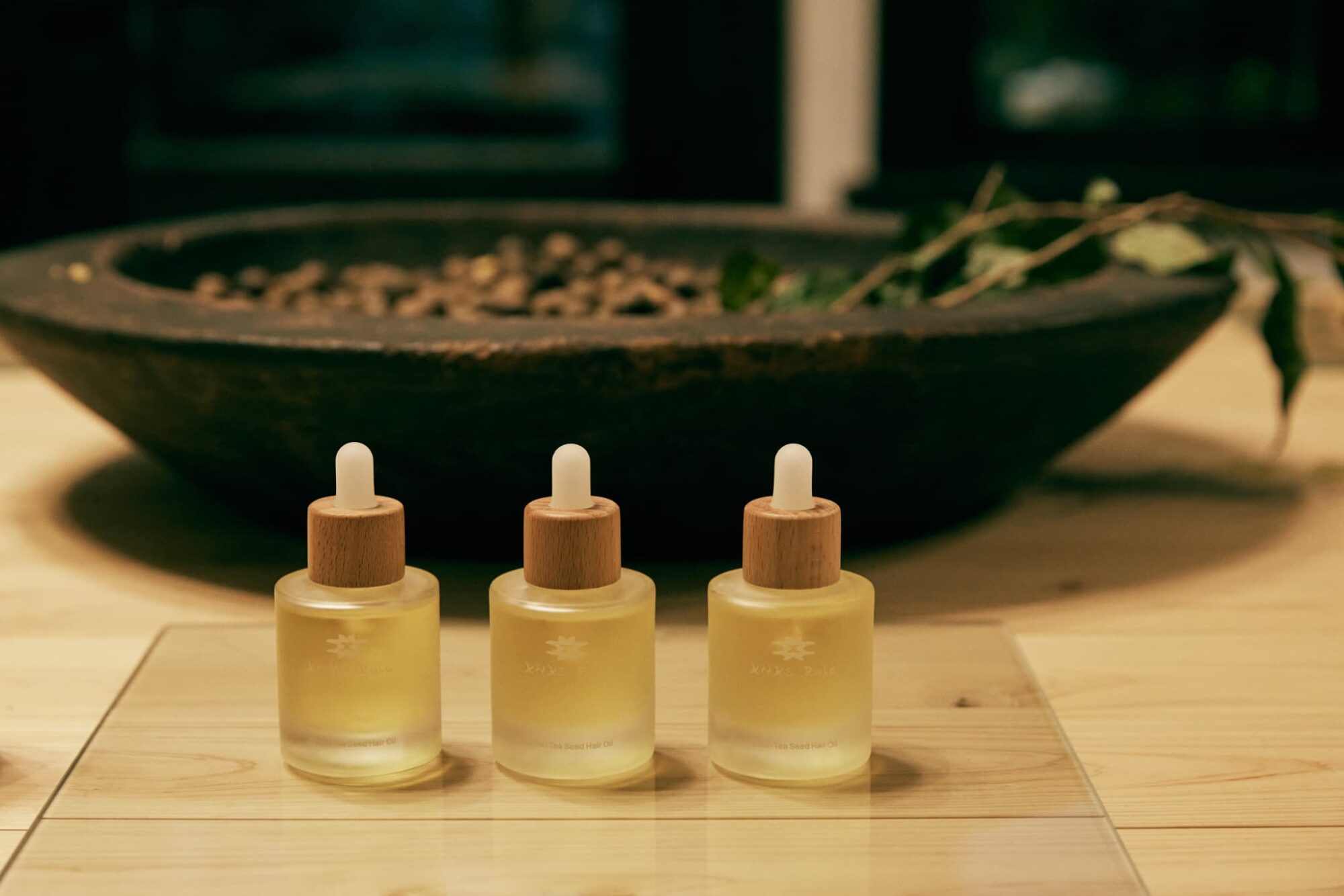
Beauty oil extracted from tea tree seeds is blended with jojoba seed oil and camellia seed oil.
"Green Tea Seed Hair Oil” is expected to keep hair and scalp healthy and to add shine, bounce, and moisture to hair.
Kiko Mizuhara and Rola, who has expanded her career from model to actress and settled overseas, have developed a close relationship because they have much in common.
They have faced not only themselves but also social issues to find a better environment and comfort while basing their work on fashion, and have put it into practice while sincerely learning and working hard for solutions. We spoke with the two, who had temporarily returned to Japan after evacuating from a fire in LA that engulfed the city on an unprecedented scale.
What is the background behind this collaboration?
Kiko: I was always impressed by Rola’s honest and positive words about important things, so I approached her.
I had seen her talk about the importance of food and how our hearts are all connected to the earth, about the global environment and the climate crisis, and also about running her own brand and making handmade cosmetics. When I moved to LA last year, we had a chance to hang out and talk about many things deep inside ourselves. After that, she served me home-cooked food and let me use her hair oil that she had mixed herself, and we talked about how we wanted to work together on Japan and the environment. This time, when I heard about the tea seed from the factory, I really wanted her wonderful fragrant oil to be made into a product at kiiks.
Rola: We both have the same direction we are looking in, so we hit it off really well. I was 100% sympathetic to what Kiko was doing, and she also has an artistic and stylish sense of style. Actually, even before Kiko started this brand, I had a feeling that it would be great if she did cosmetics. I was very happy that she approached me this time, because I feel that our images are connected, and I also think it’s cool that Kiko expresses and expresses her sincere and honest feelings about not only nature and the local community, but also the global environment, and I really empathize with her.
While the product has a will to address issues such as abandoned farmland and bamboo damage, it also has a special background that appeals to the senses, such as the use of special water called “Jinsui” for the bamboo mist, which is only available for 20 days from April to May. How do you see the characteristics of the brand?
Kiko: Tea berries are a very good oil, comparable to camellia.But there is a reason why people are not familiar with it. In normal tea cultivation, the young leaves are picked before the tea flowers bloom and the tea leaves become fruits, and then shipped as tea. In other words, in order to harvest the tea fruit, the tea leaves need to be left unplucked. Then the flowers bloom and the fruit is produced, but at that point the tea leaves can no longer be shipped as tea.
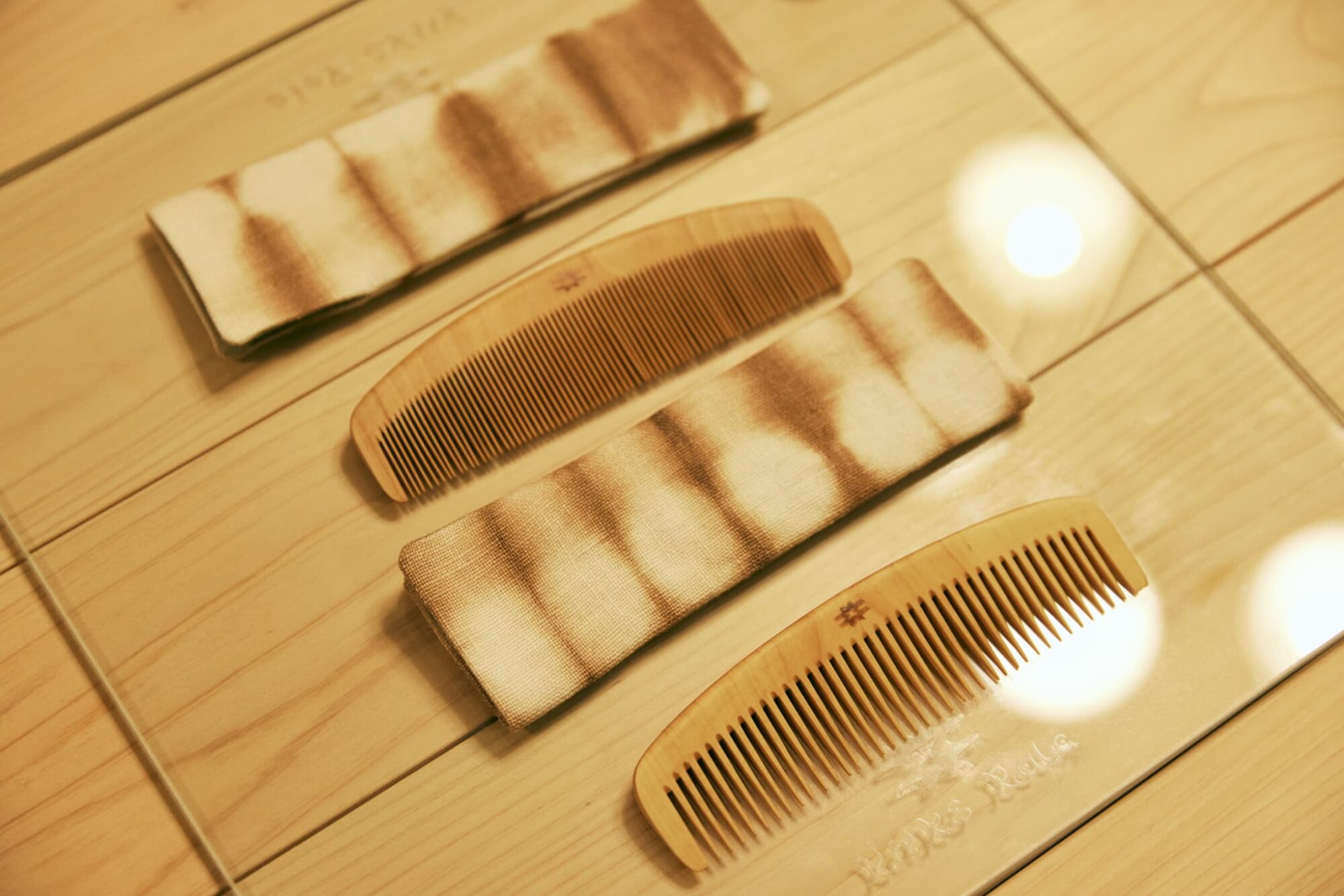
Kiiks Satsuma tsuge comb is handmade by traditional technique using Satsuma tsuge grown in Kagoshima, Japan.
Each tea-dyed linen case has a different expression.
Today, many tea fields in Japan are abandoned and unmanaged due to the aging of the population and other factors.
Focusing on this problem of abandoned tea fields, we wanted to find new value in them. By harvesting tea seeds from abandoned tea fields and extracting the rare oil from them, we hope to make effective use of farmland and create new farmers.
Tea seed oil has a special value because the extraction rate is low and general distribution is difficult. This product also has a symbolic meaning for Japan’s agricultural problems. In addition to abandoned farmland, Japan has a mountain of problems such as bamboo damage, aging population, and lack of successors, which are causing the decline of agriculture, traditional crafts, and other indigenous cultures.
Now that I have learned about this situation, I wanted many people to know about it. I thought it would be great to be able to create a product that kills two birds with one stone that works on such problems, while also learning that bamboo grows so fast and takes root so shallowly that it is difficult to keep up with its management. I like artistic things, so we put our own creativity and cooperation from everyone on top of the knowledge of the factory people. I want people to think this product is cool through the power of creativity, and I want people from all walks of life to use it. I want this product to reach people who are not only looking for ethical products, while paying attention to the design of the visuals and packaging, as well as the transparency and role of the contents. I also hope that kiiks will be an opportunity for people to connect with nature and learn about environmental issues.
Due to the nature of the product being made from abandoned land, isn't there a lot of difficulty in the production process?
Kiko: The biggest reason for this is that the amount of water collected cannot be predicted in advance on abandoned land.
We cannot order containers in advance, so the cost inevitably goes up. We try various things to clear the problem of quantity of lots, but we also need to conduct tests to see if the product will react with glass containers, for example. They are completely natural cosmetics made only from ingredients extracted from plants, so they have a short usage period of about a year and a half. We receive positive requests from foreign countries to sell our products, but it sometimes doesn’t go as smoothly as we would like because of the different regulations in each country.
I am trying to solve each problem carefully, telling myself that it has only been less than a year since I started kiiks, and that it is important to keep going, so I will do my best without rushing and without haste.
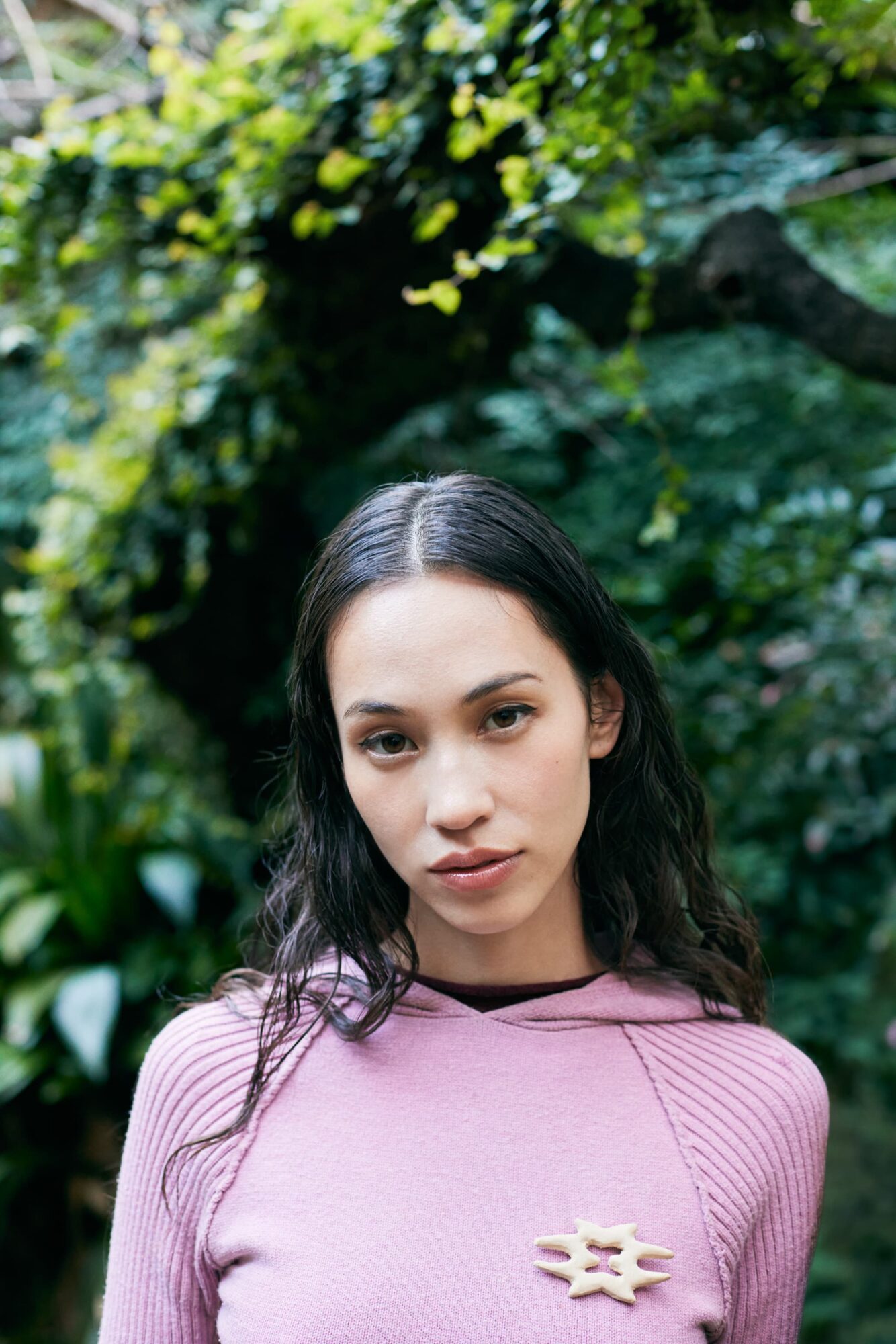
You were picking tea berries with volunteers from Kinko Town, Kagoshima Prefecture. How did you feel about the importance of actually going there and doing it?
Rola: I think you can communicate from the heart by actually experiencing it, and your feelings will show in the product.I can picture the faces and voices of the people I picked with. It’s invisible to the eye, but I think it’s wonderful that the product is filled with the experience of the day that we all created together. The fact that we are all looking in the same direction together also motivates us. It was a special experience that doubled and tripled the happiness of meeting people who said “thank you,” but it was our pleasure to say “thank you,” too, and to help make the earth a better place.
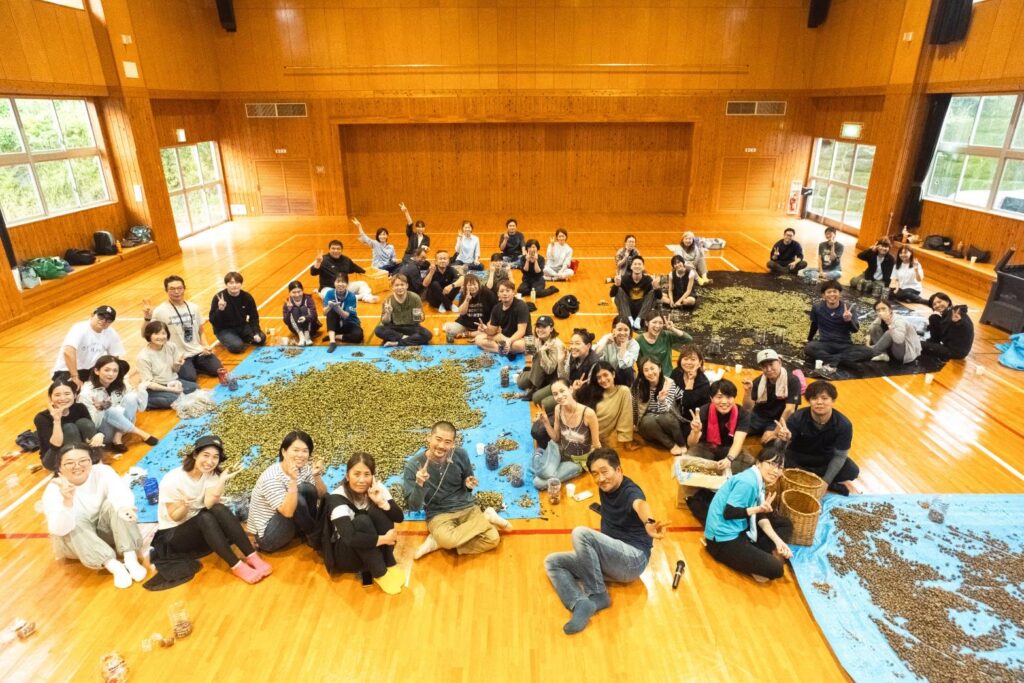
Harvesting tea leaves with volunteers
©BOTANICAL FACTORY
As soon as I entered the exhibition hall, I felt radiant with the scent of flowers, which was just gorgeous. The focus on fragrance must have been strong.
Kiko: We decided to actually go to the factory in Kagoshima and make a decision. We decided to go with simple raw materials, and Rola intuitively chose this, this, and this. I guess because she does this on a regular basis, she was very quick in making her choice, and it was the fastest in kiiks’ history.
Rola, through your brand STUDIO R330, you have been confronting various issues such as environmental problems. Four years have passed since the launch, but what are your current feelings and movements?
Rola: It wasn’t as easy as I thought it would be, and there were quite a few things that didn’t go the way I wanted. There were times when I turned my back on the project because it was too expensive to do it the way I wanted, but I faced it and accepted it without giving up and went through a lot of trial and error to take another step forward.
Now, I am beginning to see a glimmer of hope as people at large companies are beginning to accept even small amounts from the brand. It was also significant that I felt the love of the people around me who supported me through my activities, and that I was able to face up to my own mental habits.
I am very excited because I am gradually beginning to create the worldview that I want to create. I would like to expand this excitement even further by adding more Japanese elements and learning more about food.
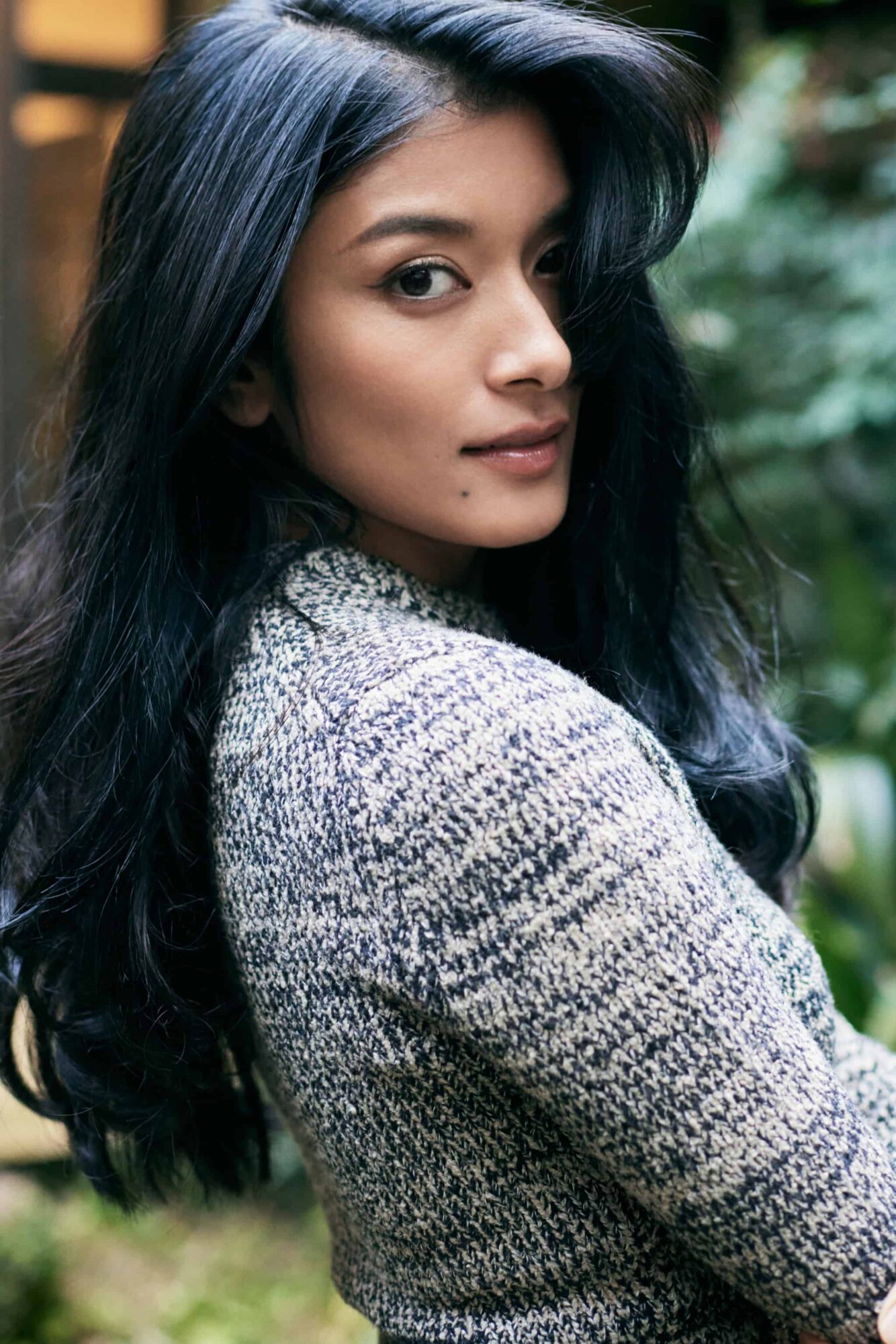
Kiko has been a personal yet courageous voice on issues common to the industry. You have also become a kind of spokesperson for creative content dissemination and the spread of a wide range of values through your distribution programs. You have been a support and light for the weak and the minorities lost in the chaos. Do you ever think about your existence and role as a free and life-size yet global and local person?
Kiko: I can’t say too much. This kiiks is also made possible by the cooperation of so many people, and I could never have done it alone. But my mission comes to me on its own, doesn’t it? Anyway, I am interested in many things. Music, art, nature, and other things that I can’t even handle sometimes. That’s why I have all kinds of friends in all kinds of places, and there are moments when everyone connects with me and the joy of doing something together. I have the feeling that I can only be alive when I feel that. I started acting because someone told me that I could do it.
I have continued to do what I feel comfortable with and what I want to do based on my intuition, so maybe I will know what my role is before I die. I will continue to be indebted to others as I have been in the past, but I will do what I can do each time and be thankful for it, and I hope that this will expand and grow. Since Corona, the world has been expanding rapidly, so I would like to keep going as far as I can and do something good for the global environment, such as conveying the charm of Japan to the world. I think that by working hand in hand with Rola, we can communicate to more people, so I would like to continue to work on bigger and bigger projects.
I have been working with you since you were in your teens, and I was impressed by the way you have always valued your own individuality since then, and when monetization through SNS became a full-fledged trend, you said you would not jump on the bandwagon. Also, you left your office and established your own private agency, Office Kiko, ......, and have continued to be recognized both domestically and globally while maintaining your life-size. This showcase was also very much like OFFICE KIKO, which shares joy from the fans' point of view, and it was a very loving method of inviting people openly and presenting without dividing them.
Kiko: I remember when I was told that if I posted a pizza on social networking sites, it would get a lot of buzz! I remember thinking, “I don’t like that!” I never really thought I would become a celebrity in the first place. I simply loved modeling and had no aspirations of becoming a celebrity. But it just so happened that the “Norwegian Wood” opened up that path for me. But I myself am the type of person who likes clubs, likes to hang out in Shibuya and Harajuku, likes vintage clothes, etc., and that hasn’t changed and is still there. Anyway, I didn’t want to make it difficult to live. I wanted to play at clubs and go shopping and walk around by myself like a normal person, so I’ve been able to slip through it.
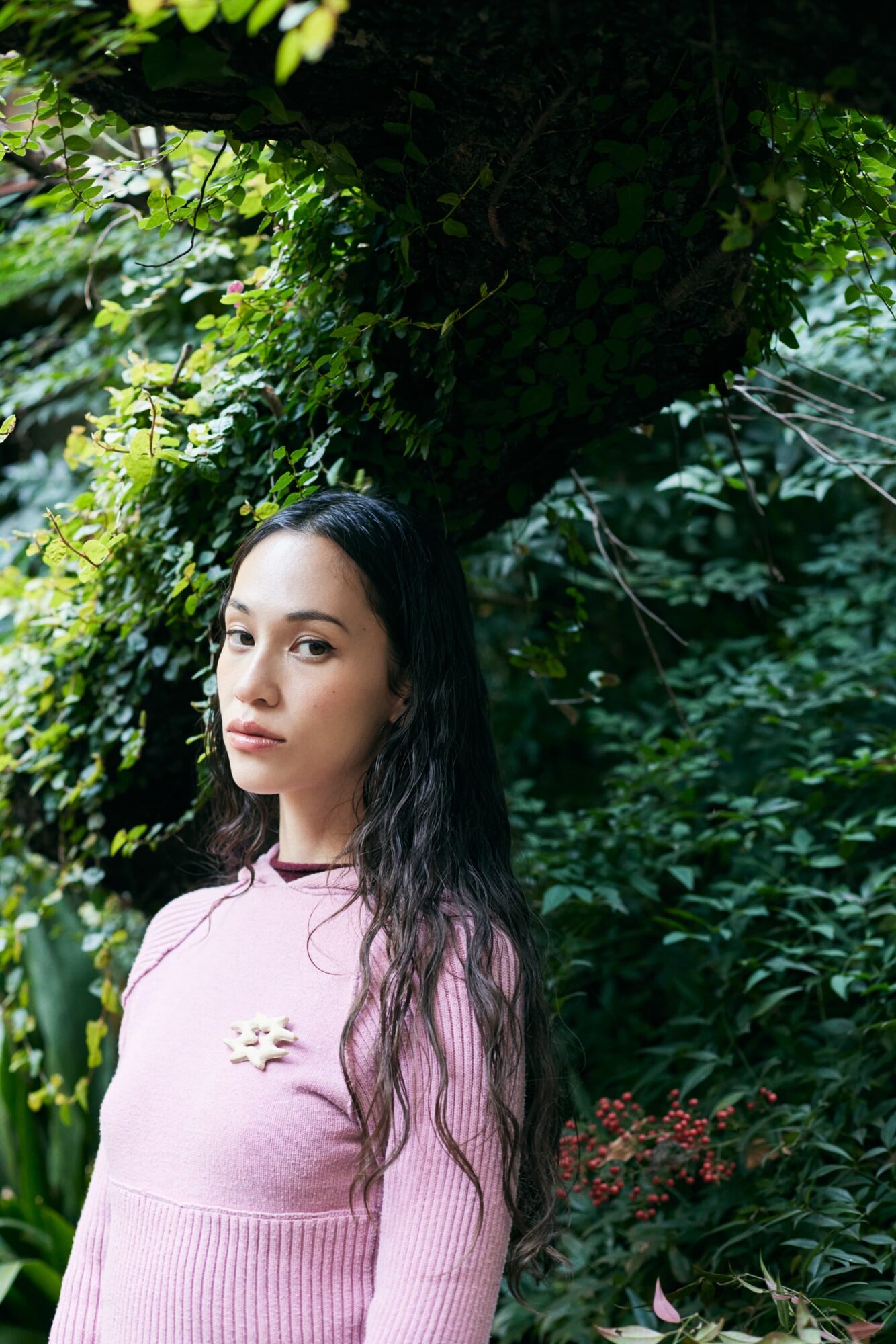
You have dared to expand your comfort zone by making choices that do not make life difficult.
Kiko: A long time ago, when I was in an office and just starting my acting career, I was told to break up with my boyfriend. Since I was inexperienced as an actor as well as in life experience, I decided to quit the office because I thought it would be better for me to gain a variety of experiences. That is not to say that I took a boyfriend, but I thought that there were various choices I could make to continue being an actor. When I thought that each person should choose his or her own way of life, I felt that I should go this way, even though it might be harder because I would have to take on more responsibility.
Rola: There were times when I also lost track of myself because the office was too close to try to protect me when they see me with a man in my private life. There was a time when I lost myself.
Kiko: You once told me that when you were wearing colored contacts and dyeing your hair, you lost sight of yourself when you looked at your reflection in the mirror.
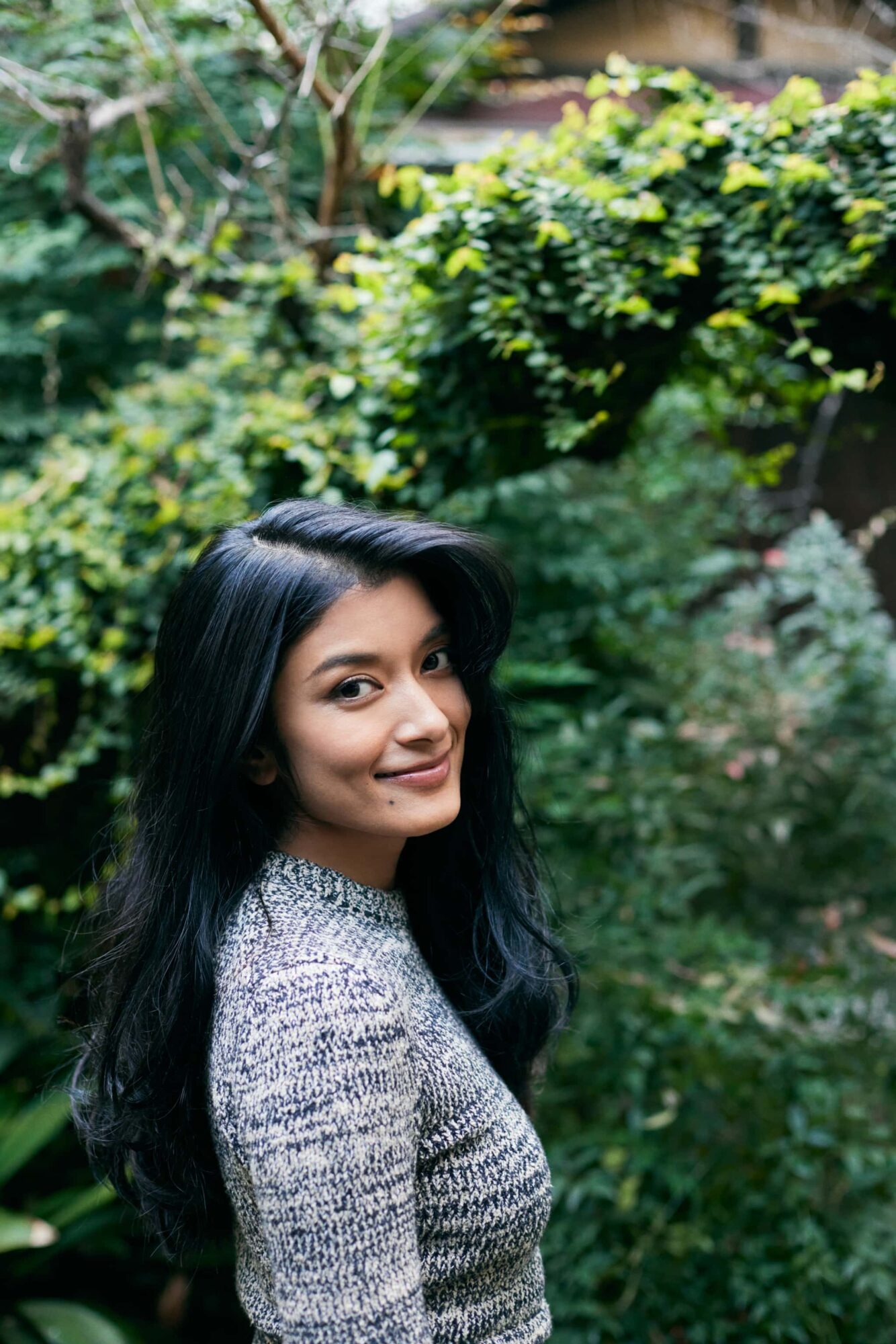
Overplay the required "Rola" image?
Rola: I was trying to be natural, but I was getting more and more unsure of it. Of course I was having fun, but… A lot of things came together, and one day I woke up in the morning and realized I wasn’t excited. I felt I was in a place of stability and security, and I knew I had no choice but to take a leap of faith and go abroad. I started by looking into my own mind, and I realized that I had to fix what was making me depressed. I didn’t know who I was, so I exercised anyway, and I started feeling more and more positive.
Lately I’ve stopped dying my hair, and I’m loving myself more and more as I am with each passing year, and my love for myself is growing deeper and deeper. I am now able to speak naturally with my friends overseas, and I can enjoy to do so. Thanks to this, I’ve been able to look beyond myself and want to share my giving to protect the global environment or to help something. I may have learned that I can give to others by loving myself properly.
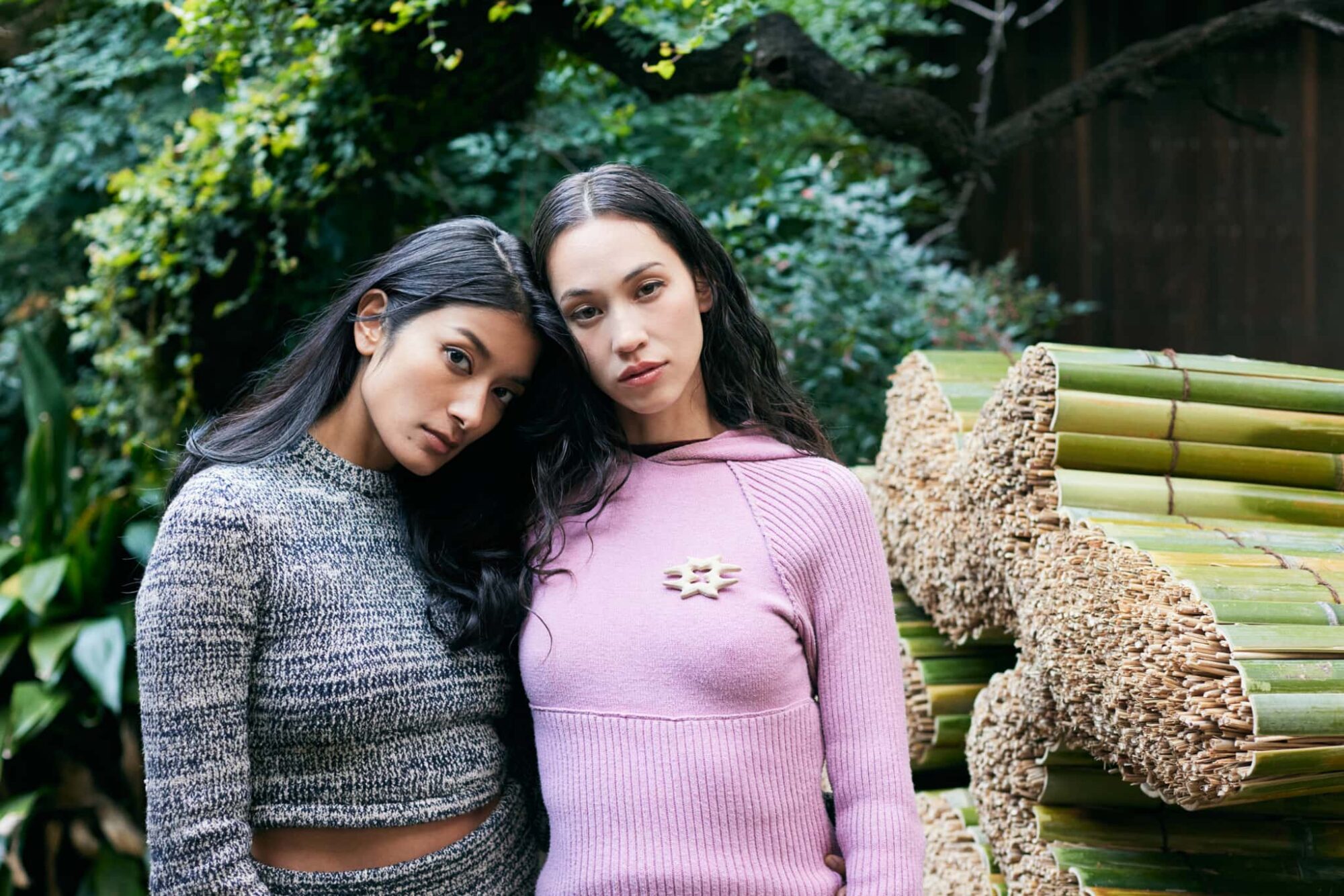
Can you tell us about any experience that you two who are working on the front lines have had with the environment and people in various sites?
Kiko: The Intimacy Coordinator profession has been gaining attention in the Japanese film industry. I was able to lead to its adoption by the actions4cinema led by Hirokazu Kore-eda. It was a very traumatic experience, but I am very happy that I was able to raise one issue in the Japanese film industry, and now the time has come for NHK to use the position.
Rola: You just saw the Los Angeles fires. While things are happening very hard, thanks to social networking sites, information about volunteering is spreading. Recently, I was struck by a volunteer group made up of girls who helped a teenage girl who had lost her home, makeup, sanitary napkins, and underwear. I felt very relieved to have the support of my own generation and gender, and I thought it was very important to not only distribute goods, but also to provide emotional care. I thought it was a wonderful volunteer activity that I had never seen before, where people could talk, laugh together, and care for each other, and I thought it was a new movement.
Kiko: I think it is very important for everyone to work together fast to solve social problems that we are facing now. We are the same age and in the same industry, and we have many things in common, such as our concerns about our half-Japanese identity. I hope that we can continue to consult with each other and make this a bigger and bigger movement.
Rola: I feel that being able to connect and share things with Kiko like this again is motivating me. I want to expand my excitement even further.
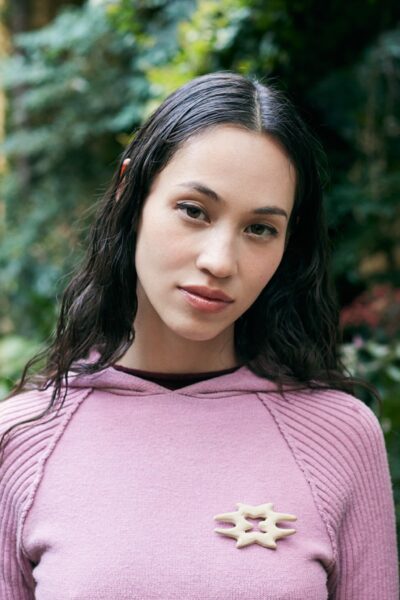
Model, Actress, Representative of OFFICE KIKO
Kiko Mizuhara
Born in the U.S. and raised in Japan. She has an American father and Japanese mother. She has been active as a model since her teenage years and currently graces the covers of fashion magazines around the world, and made her acting debut in Tran Anh Hung’s “Norwegian Wood” in 2010, and won the Best Supporting Actor Award at the 35th Takasaki Film Festival in 2022 for Yukiko Saishide’s “Aristocrats”. She is currently working on the Japanese culture-inspired brand OK and kiiks.
INSTAGRAM
kiiks
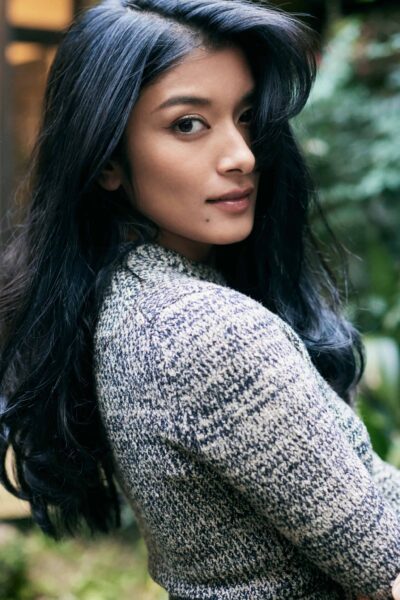
Model, Actress, Creative Director of STUDIO R330
Rola
Born in Tokyo, Japan. She has a Bangladeshi father and a mother of Russian heritage. Born in Japan, she spent her childhood in Bangladesh. In 2016, she appeared in the Hollywood movie “Resident Evil: The Final. She is also the creative director of her own lifestyle brand, STUDIO R330.
INSTAGRAM
STUDIO R330
